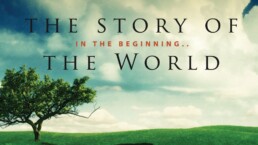DC127 Prayer Gathering
Last night, members and pastors from several DC churches gathered to pray together. Restoration Church was among those present.
The specific focus was on praying for Foster Care and Adoption in DC, and Restoration Church was asked to pray for the unity of churches in DC. Below is the prayer offered:
Graciously heavenly Father, we come to you boldly and confidently knowing that because there’s a bloody cross and empty tomb on earth, Jesus occupies the throne in heaven. We come to you as your sons and daughters, united to your eternal Son, Jesus Christ, through the power and fellowship of the Holy Spirit as he births faith and repentance in our hearts.
We come praising your name for the sake of your glory. Above all else, we plead with you to hallow your name. “Our Father in hallowed be your name. Your kingdom come on earth as it is in heaven.”
We praise you, our Triune God, united in all your eternal perfection. You have given us the unifying message of the gospel. We cry out with the Psalmist, “Behold how good and pleasant it is when brothers and sisters dwell in unity!”
By the power of your Spirit and for the glory of your name, unite churches in DC together that we might encourage one another to proclaim and exalt and delight in the supremacy and sufficiency of the Lord and Savior Jesus Christ.
May our churches unite to be a bright light as we faithfully hold to the truth of the gospel, and labor alongside each other to help others in our city taste and see that you are good, that you and you alone satisfy the longing soul and the hungry soul you fill with good things.
By your same grace that saves us, cause our churches to stand firm in one spirit, with one mind striving side by side for the faith of the gospel.
And as this good news echoes from our churches throughout our city, remind the orphans, that you are a Father to the fatherless. Bring hope; bring caretakers; bring adoptive parents; bring the gospel that the fatherless in this city might know you as their heavenly Father, even if they don’t know their biological father.
Cause us to be so captivated by your grace and love that we stand united and lavish that same love on those around us. Ignite a passion in us to care not just for the orphan and the widow, but for all those marginalized by society; for all those physically and spiritually broken.
We ask all of this in the unifying power of the Spirit and majestic name of Jesus Christ, Amen.
Pastoral Prayer
Your steadfast love, oh Lord, never ceases. Your mercies never come to an end; they are new every morning. Great is your faithfulness. Your word recounts your faithfulness to your people through all time. You clothed Adam and Eve when their eyes were opened to their nakedness by their sin against you. You preserved Noah from the flood. You made a covenant with Abraham that you began to fulfill through his son Isaac and his son Jacob. You supplied Joseph an exalted position under Pharaoh that Jacob’s family would have food. You rescued your people from slavery in Egypt and we see in Numbers you delivering them to the cusp of the promised land.
We confess Lord that we respond to your faithfulness by being an unfaithful people. We are quick in our hearts to condemn the unfaithful spouse, the ungrateful child, the exasperating parent, the selfish friend, the shirking employee or coworker. But our condemnation is unjust. Who are we to judge when we stand before you justly condemned by our own unfaithfulness to you. We are unfaithful to you when our affection for a spouse, a child, or any person outstrips our affection for you. We are unfaithful to you when we take your name in vain, using it loosely and carelessly. We are unfaithful to you when we do not set apart the Sabbath to you, when we do not honor our parents, when we murder or even hate another person, when we commit adultery or even lust after another person. Lord, we confess that there is no end to our unfaithfulness.
But in your great mercy you have reconciled to yourself all who have turned from their sin and trusted in you. You have blotted out our transgressions like a cloud and our sins like mist. You call us to return to you, for you have redeemed us.
We thank you Lord that in your kindness you not only rescue our souls, but you supply all our needs and so much more. We recognize that it is you who provides us food, clothing, and shelter. You have provided us the freedom to gather and worship you without interference.
We pray not just for ourselves but for our brothers and sisters in other countries who lack the freedom to worship you openly or evangelize freely. We pray that they would remain steadfast in the face of opposition and bold in their proclamation of their faith. We pray particularly for those in North Korea who face persecution for their faith in you. Increase their number as a demonstration of your power over the rulers of this world. Increase their faith as you sustain them in great difficulty. Increase their hope in you as they look forward to the day when they, when we all, will worship at your feet. Let them hold fast the confession of their hope without wavering, for you who promised are faithful.
We pray also Lord for our city. We’re thankful for the way you have greatly increased the number of churches that teach your word and your gospel in the District. Continue this work we pray. Grow Grace DC Downtown and Grace DC Meridian Hill for your glory. Grow Church of the Resurrection, Church of the Advent, and Church of the Ascension for your glory we pray. And speed godly men who hope to plant more sound churches to glorify you in neighborhoods like Logan Circle, we pray. Bring all these things about for the good of your people and the glory of your name. We pray in the name of Jesus Christ, our Savior. Amen.
If There Be Any Heaven on Earth
Another powerful quote form Isaac Ambrose:
“[Look to Jesus]…remember how bled for you, poured out his life for you, is now risen for you, gone to heaven for you, sits at God’s right hand, and rules the world for you; makes intercession for you, and at the end of the world will come again to you, and receive to himself, to live with him for ever and ever. Surely if you believe and look upon this, your life is comfortable and death will be sweet. If there be any heaven upon earth, you will find it in the practice and exercise of this gospel duty, in, ‘Looking unto Jesus.’”[1]
Looking unto Jesus
From Isaac Ambrose's book, Looking Unto Jesus:
In [the] knowledge of Christ, there is an excellency above all other knowledge in the world; there is nothing more pleasing and comfortable, more animating and enlivening, more ravishing and soul contenting; only Christ is the sun and center of all divine revealed truths, we can preach nothing else as the object of our faith, as the necessary element of your soul’s salvation, which doth not some way or the, either meet in Christ, or refer to Christ; only Christ is the whole of man’s happiness, the Sun to enlighten him, the Physician to heal him, the Ark to support him, the Rock to sustain him under the heaviest pressures… Only Christ is that ladder between earth and heaven, the Mediator between God and man, a mystery which the angels of heaven desire to pry and peep and look into (1 Pet 1:12). Here is a blessed subject indeed; who would not be glad to pry into it, to be acquainted with it? “This is eternal life, to know God and Jesus Christ whom he hath sent” (John 17:3). Come then, let us look at the Sun of righteousness. We cannot receive harm but good by such a look; indeed by looking long on the natural sun, we have our eyes dazzled and our faces blackened. But by looking unto Jesus Christ, we shall have our eyes clearer and our faces fairer… As Christ is more excellent than all the world, so this sight transcends all other sights; it is the epitome of a Christian’s happiness, the quintessence of evangelical duties, looking unto Jesus."
(Isaac Ambrose: Looking Unto Jesus, Harrisonburg, VA: Sprinkle Publications 1986/1658, 17-18).
Eating Shellfish in a Poly-Cotton Blend Suit
Can you be biblically faithful while eating shellfish in a poly-cotton blend suit? Some would answer "No!" They would point to the various commands found in Leviticus and show how that would be breaking of the Lord's law.
But is that how we are to interpret the Bible? Is the Bible a set of random rules? Or do we need to understand the various commands and stories of the Bible in a larger picture?
In the article below, Tim Keller provides some excellent insight as to how we are to understand the relationship of the Old Testament laws today.
The Old Testament devotes a good amount of space to describing the various sacrifices offered in the tabernacle (and later temple) to atone for sin so that worshipers could approach a holy God. There was also a complex set of rules for ceremonial purity and cleanness. You could only approach God in worship if you ate certain foods and not others, wore certain forms of dress, refrained from touching a variety of objects, and so on. This vividly conveyed, over and over, that human beings are spiritually unclean and can't go into God's presence without purification.
But even in the Old Testament, many writers hinted that the sacrifices and the temple worship regulations pointed forward to something beyond them (cf. 1 Sam. 15:21-22; Ps. 50:12-15; 51:17; Hos. 6:6). When Christ appeared he declared all foods clean (Mark 7:19), and he ignored the Old Testament cleanliness laws in other ways, touching lepers and dead bodies.
The reason is clear. When he died on the cross the veil in the temple tore, showing that he had done away with the the need for the entire sacrificial system with all its cleanliness laws. Jesus is the ultimate sacrifice for sin, and now Jesus makes us clean.
The entire book of Hebrews explains that the Old Testament ceremonial laws were not so much abolished as fulfilled by Christ. Whenever we pray "in Jesus name" we "have confidence to enter the Most Holy Place by the blood of Jesus" (Heb. 10:19). It would, therefore, be deeply inconsistent with the teaching of the Bible as a whole if we continued to follow the ceremonial laws.
Law Still Binding
The New Testament gives us further guidance about how to read the Old Testament. Paul makes it clear in places like Romans 13:8ff that the apostles understood the Old Testament moral law to still be binding on us. In short, the coming of Christ changed how we worship, but not how we live. The moral law outlines God's own character---his integrity, love, and faithfulness. And so everything the Old Testament says about loving our neighbor, caring for the poor, generosity with our possessions, social relationships, and commitment to our family is still in force. The New Testament continues to forbid killing or committing adultery, and all the sex ethic of the Old Testament is re-stated throughout the New Testament (Matt. 5:27-30; 1 Cor. 6:9-20; 1 Tim. 1:8-11). If the New Testament has reaffirmed a commandment, then it is still in force for us today.
The New Testament explains another change between the testaments. Sins continue to be sins---but the penalties change. In the Old Testament sins like adultery or incest were punishable with civil sanctions like execution. This is because at that time God's people constituted a nation-state, and so all sins had civil penalties.
But in the New Testament the people of God are an assembly of churches all over the world, living under many different governments. The church is not a civil government, and so sins are dealt with by exhortation and, at worst, exclusion from membership. This is how Paul deals with a case of incest in the Corinthian church (1 Cor. 5:1ff. and 2 Cor. 2:7-11). Why this change? Under Christ, the gospel is not confined to a single nation---it has been released to go into all cultures and peoples.
Once you grant the main premise of the Bible---about the surpassing significance of Christ and his salvation---then all the various parts of the Bible make sense. Because of Christ, the ceremonial law is repealed. Because of Christ, the church is no longer a nation-state imposing civil penalties. It all falls into place. However, if you reject the idea of Christ as Son of God and Savior, then, of course, the Bible is at best a mishmash containing some inspiration and wisdom, but most of it would have to be rejected as foolish or erroneous.
So where does this leave us? There are only two possibilities. If Christ is God, then this way of reading the Bible makes sense. The other possibility is that you reject Christianity's basic thesis---you don't believe Jesus is the resurrected Son of God---and then the Bible is no sure guide for you about much of anything. But you can't say in fairness that Christians are being inconsistent with their beliefs to follow the moral statements in the Old Testament while not practicing the other ones.
One way to respond to the charge of inconsistency may be to ask a counter-question: "Are you asking me to deny the very heart of my Christian beliefs?" If you are asked, "Why do you say that?" you could respond, "If I believe Jesus is the resurrected Son of God, I can't follow all the 'clean laws' of diet and practice, and I can't offer animal sacrifices. All that would be to deny the power of Christ's death on the cross. And so those who really believe in Christ must follow some Old Testament texts and not others."


